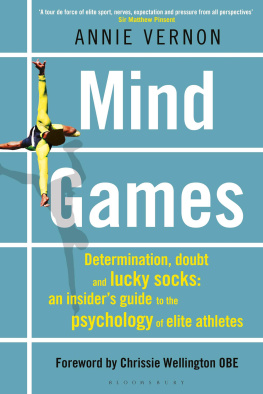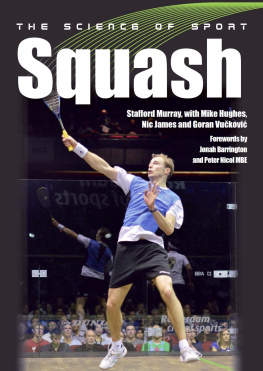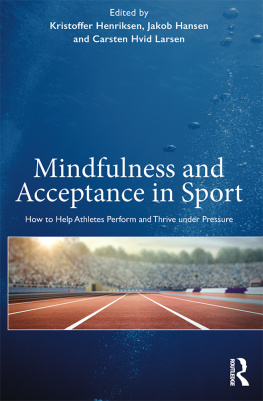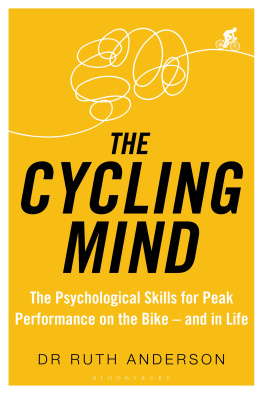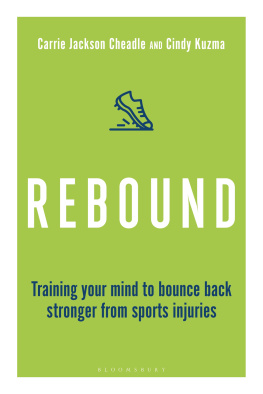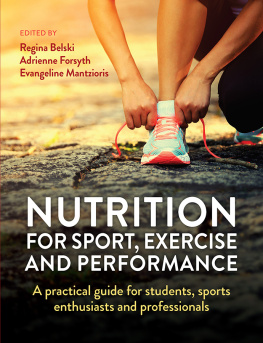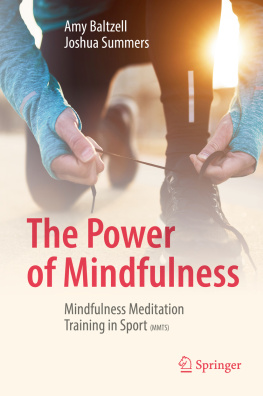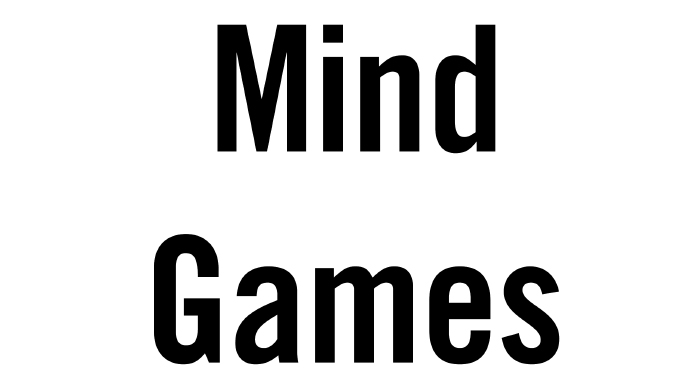
For Matt, my love

Contents
Sport has always been my companion. It was my hobby and passion, then it became my career and passion, then it became my hobby and passion again. Whether rowing, running, cycling, surfing, swimming, riding or playing hockey, Ive been lucky to have had sport in my life. I wish everyone can have something like sport as their friend and travelling companion, who simply makes them feel good.
Thanks to the people who set me on my way not only to a sporting career, but to a sporting life: Sue Roworth at Wadebridge School, and Alastair and Vivianne Barr at Castle Dore Rowing Club.
Making the step up to row for Downing College and Cambridge University gave me memories and friends for life. Thanks to all my mates who came to support me at rowing events around the world you know who you are.
Adrian Cassidy, Paul Thompson and Ade Roberts were my patient and understanding coaches who enabled me to be better than I could ever have imagined. Thank you.
Thank you to the incredible women with whom I was privileged to share rowing boats. You will never meet a group of people more passionately committed to doing their country proud than the British rowing team and its staff. Frances Houghton, Elise Sherwell, Debbie Flood, Katherine Grainger, Anna Watkins, Beth Rodford, Mel Wilson, Jo Cook, Jess Eddie, Caroline OConnor, Vicky Thornley, Katie Greves, Lou Reeve, Lindsey Maguire, Liv Whitlam, Tash Page and Sarah Winckless. We shared the best of times and the worst of times together thank you.
My friend Timandra Harkness invited me to her book launch in the summer of 2016, at which I met her editor, Jim Martin, from Bloomsbury. Writing a book seemed a daunting prospect, but Jims support and enthusiasm got me to the start line.
Jim passed me to Matthew Lowing, who has helped me to the finish line. Hes been a voice of reason and reassurance through the process of gathering material for this book, then getting it down in semi-lucid fashion.
Thank you to the fantastic array of friends, teammates, friends of friends and connections who contributed to Mind Games . They all took time to sit down with me and share their innermost thoughts and mental processes, and it was a huge honour to have them take me into their confidence. Thank you to all my contributors, both those who are quoted and those whose input was a natter over a cup of tea.
I hope all contributors feel I have represented their input correctly; if not, I can only apologise and say that everything I have written has been in good faith and I have tried to stay as close to what the individual meant as I can. All mistakes are my own. Thank you all.
Dr Claire Hawcroft was on hand to field medical questions, and Dr Mark Homer answered queries about sports science. Mark Eglinton offered advice and encouragement during my first fumbling attempts at chapters.
So many people read bits of the book to give me their feedback: Mark Sluman, Gillian Hardcastle, Julia Parker, Rich Brown, Helen Murray, Ilona Groark, Matt Fewster, Susie Robertson, E.C. Varley, Louise Edwards. Cheers to you all.
The book came in significantly over word count, so I roped in my mum to help me go through the text line by line to decide what would stay and what had to hit the floor. The outcome was a leaner, more fluid and in all respects better book. Thanks, Mum, for the hours you spent staring at the computer screen as we debated the merits of each sentence over and again during the heat wave of 2018.
My wonderful family and Matts wonderful family have shared my enthusiasm for Mind Games . Thanks, Mum and Dad, Will, Joe and Gem and of course the three musketeers Amelia, Tris and Jago. Thanks, Matt, for being you.
I became a mum not long after submitting my first draft, and Patrick was my companion during the months of final editing and revisions. It turns out sleep deprivation and new mum hormones are surprisingly good for the creative juices, and the final edits were as much of a joy as the rest of the book.
I hope sport enriches Patricks life as much as it has enriched mine.
It was January 2007, Santas sack had been well and truly emptied and the new year had been welcomed in with more than a healthy dose of champagne and appalling strangled cat renditions of Auld Lang Syne (of which I still only know one line, despite having celebrated over 40 New Years Eves). This particular new year was potentially also a new you moment in that I had been given an opportunity that changed the course of my life the chance to spend a week in the alpine village of Leysin, Switzerland.
I made the trip not to indulge in its fine quality triangular shaped chocolate or cheesy fondue delights but to spend seven days under the eagle eye of a professional triathlon coach. In short, I needed some frank and candid advice. I had won the World Age Group Triathlon Championships the previous year aged 29 (practically pensionable age for many a professional athlete). Winning that race ignited many a question in my mind. Had I reached my potential or did I have more to give? Should I hand in my notice as a civil servant to try and make a career out of swim, bike and run? Or would I do better focusing my efforts elsewhere sticking to age group antics or trying my hand at something else altogether (my performance in both the tug of war and the rounders competitions at the annual civil service sports day had, however, highlighted my lack of talent in those particular activities)? And so, with mince pies, Christmas puddings and ladles of brandy butter weighing heavy on my mind (and waistline), I found myself aboard a plane bound for Geneva.
On arrival it was a baptism of elite athletic fire. I was given a number of test sets, in the pool, on the bike and then on the treadmill the feedback was often little more than a grunt which I took as meaning my performance had been decidedly sub-optimal. Between training sessions, I went home to eat my own body weight in food and then, purportedly, rest. I became instantly aware of my inability to relax, switch off and do nothing. Learning to do so was going to be a challenge.
Grunts were quickly replaced by a grilling on aspects of training I hadnt really given any consideration to until that point: Did I relish a fight? Could I remain calm and composed when things didnt go according to plan? Can I see success and failure as two sides of the same, life learning coin? Can I deal positively with injury rather than fearing it? Could I be patient, and not rush at everything like a bull in a china shop? Could I cope with the mono dimensional nature of professional sport? Could I regulate and rest an over-analytical, self-critical mind that tended to run riot? The soliloquy ending with the comment that, although physically I may be able to hold my own in the elite ranks, in order for me to reach my potential my head would have to be unceremoniously chopped off.
That over-analytical mind promptly went into a spin. To me triathlon was about swim, bike and run, and doing so as fast as I possibly could. I hadnt given any thought to the fact that success in sport was often less about the body and more about what lay between my ears. The head chopping comment was a slightly macabre way of telling me that I had work to do. In short, my inability to relax, my continual questioning, stress and impatience risked undermining everything I wanted to achieve. This was an early lesson in the importance of the mind in achieving sporting success.

